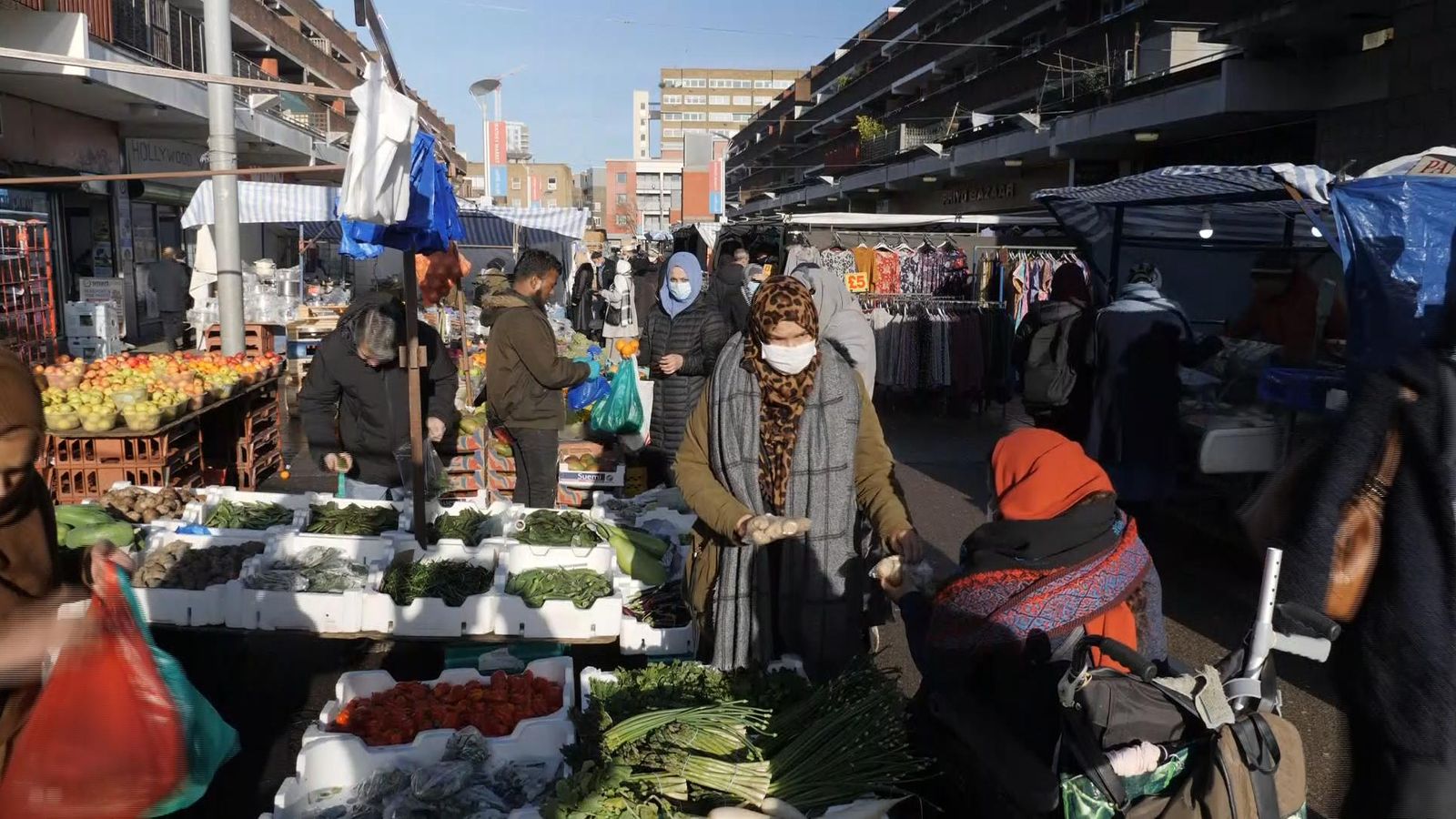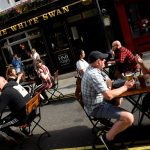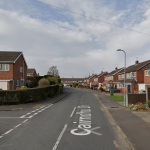Oliur Rhaman was born in Bangladesh but having run market stalls for over twenty years he’s a familiar face amongst his east London community.
So familiar, in fact, that people feel able to come to him asking for food they can’t afford to pay for.
“Not free. Money back,” he says, swinging a bag of tomatoes as he explains how things work.
Surging inflation could dwarf other issues in the political landscape as households feel the strain
The cost of living crisis is biting so deep people are asking for credit at his fruit and veg stall and he says he regularly subsidises people out of his own pocket, agreeing they can pay him back later.
“People don’t have enough money,” he says simply.
At the jewellery stall run by Imon Sarawar, there are no customers.
Cost of living: Which foods are driving the increase in inflation, according to the latest data?
Cost of living: Pay rises wiped out by surging inflation, official figures show
Cost of living: Is your job worse off following the COVID pandemic?
Nobody wants luxury items, he says. He also has a clothes stall.
He says: “At the moment people are struggling. People are always bargaining to reduce prices.
“Business is very hard. Life is very hard.”
Britain’s Bangladeshi and Somali communities have long been among the poorest in Britain.
But soaring bills and the rising cost of food are driving people into deep levels of poverty, say community leaders.
And that’s before the energy price rises predicted to come in the spring.
Jusna Begum runs a project to support the local community in east London called East End Project.
But she also helps a charity which sends aid overseas to the poorest countries.
Jusna says that same aid is now needed on the streets of east London.
She says: “I feel embarrassed to say this – the work we do abroad – we provide coats, blankets, food packs but we are actually doing the same initiative in this London borough of Tower Hamlets.
“In this day and age in 2021/2022 we are looking to give the same service to Tower Hamlets and Newham.
“It doesn’t make sense. Why are people struggling?
“We had a COVID pandemic but this is another pandemic – it’s a financial pandemic that’s coming to all the families around the country and it really worries me what the future holds.”
People are understandably reluctant to discuss having difficulty feeding and clothing their families.
Some tell us they make promises to their children for new clothes and toys they know they can’t keep or they hope their children will forget.
And that they have to choose between their children who is the most desperate for new clothes.
We went to a free lunch and social gathering provided for women from the Somali community, also in east London.
Please use Chrome browser for a more accessible video player
Zahra Suldan came to the UK 35 years ago from Somalia and says she’s never known things to be so expensive.
“It’s very difficult nowadays,” she says, running through the increases in the prices of milk and bread now compared to when she arrived.
“People are worried – look and see,” she says.
“Everything we buy is very high. Before everything was cheap.”
Khadra Muse came to the UK from Somalia 12 years ago.
Please use Chrome browser for a more accessible video player
She has seven children aged between 4 and 18 and her husband is a bus driver.
“When they ask for toys and clothes, I say ‘not now’,” she says.
“They only get toys one child at a time and tell them next month and by the next month they’ve given up.
“I feel distressed when I have to do that.”
Fadumo Abdi has six children and says she sometimes can’t afford to buy clothes for them.
She says: “They need a lot of things that I can’t afford.
“The main thing is essentials like school uniform and food and other than that I say ‘next month’ but next month never comes.”
“It’s a bit sad when you explain to a child you can’t afford to give what they want to them.”
Abdi Hassan, founder of the community support group Coffee Afrik, has described the poverty levels in his community as a “public health emergency”.
He says: “I really worry for our communities at the moment.
“It’s the highest levels I’ve poverty that I’ve ever witnessed.
“I worry about families and in particular mothers deciding in the evening who should eat food in terms of themselves or their children.
“Communities of colour are at the moment struggling perhaps in the worst they have ever seen in terms of their day to day living.”






















